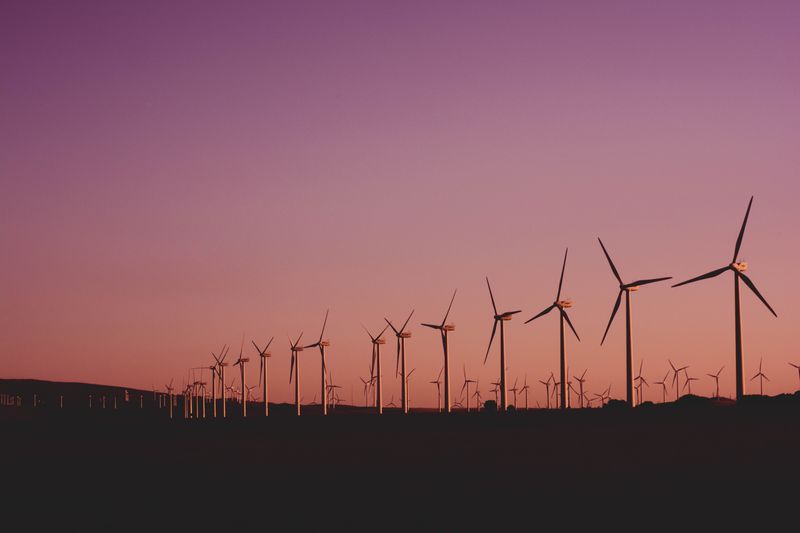Table of Contents
Jefferson Chua: Advocating for Climate Action in the Philippines
Introduction
As extreme weather events become increasingly frequent and devastating, there is a growing urgency for individuals and communities to take action in the fight against climate change. One such individual is Jefferson Chua, a campaigner with Greenpeace Philippines. Chua has been at the forefront of climate advocacy in the country, leading the Climate Emergency Preparedness and Response team in anticipation of Typhoon Mawar, one of the strongest typhoons to hit the Philippines in recent years.
A Personal Journey
Chua’s journey into climate advocacy was shaped by his personal experiences with extreme weather events in the Philippines. Growing up in a country that experiences 15-20 extreme weather events each year, including super typhoons, Chua witnessed the destructive power of these storms. From super typhoon Angela in 1995 to typhoons Ketsana in 2009, Washi in 2011, and Haiyan in 2013, Chua’s childhood was marked by the impact of these devastating storms.
These experiences, combined with the escalating ferocity and variability of these typhoons, compelled Chua to take action. His first significant step in climate advocacy came during super typhoon Rai in 2021, where he and his colleague monitored the typhoon and its formation. This experience solidified his commitment to climate activism, leading him to switch fully to the climate campaign in 2023.
Preparing for Typhoon Mawar
Chua’s most recent endeavor was leading the Climate Emergency Preparedness and Response project in preparation for Typhoon Mawar. When the typhoon started to consolidate into a system, Chua and his team monitored it closely. However, the typhoon unexpectedly intensified into a high-end category 4 and later a super typhoon, breaking numerous meteorological records.
In a unique approach, Chua and his team went to the areas where the typhoon was expected to have an impact before it hit. They focused not only on the immediate effects but also on the communities’ preparedness and ability to adapt to the changing intensity of these extreme weather events. The experience highlighted the importance of adaptive capacity but also served as a warning that there may come a time when these capacities are breached and suffering ensues, especially for vulnerable communities.
The Psyche of Climate Impacts
One often overlooked aspect of extreme weather events is the psychological impact they have on communities. Chua notes that while Typhoon Mawar did not cause significant casualties or damage, it inflicted anxiety upon Filipinos throughout the country. The trauma of previous typhoons prompted over-preparation from governments, reflecting the collective trauma and fear of the people. The damage to the psyche of these communities and their ability to cope with repeated extreme weather events should not be ignored in the discourse on climate change.
The Intersectional Impacts of Climate Change
Chua emphasizes that climate change exacerbates existing asymmetries and social inequalities. It is not just about the privation of basic needs but also the multiplication of structural problems that hinder long-term development and perpetuate the status quo. This intersectional impact of climate change highlights the need for comprehensive adaptation strategies that address not only the immediate impacts but also the root causes of vulnerability and inequality.
The Role of the Global Loss and Damages Fund
Chua raises the issue of loss and damages in climate vulnerable nations like the Philippines. As adaptation limits are being reached or already exceeded by the most vulnerable countries, having a robust loss and damage mechanism becomes crucial. This mechanism would provide compensation for losses that even the best mitigation and adaptation measures cannot address. However, Chua emphasizes that this should not detract from the importance of prioritizing adaptation efforts and supporting community-led solutions.
Hopes for the Future
Chua’s hopes for the future center around acknowledging the role of corporations in the climate crisis and engaging in meaningful conversations with governments and impacted communities. He believes that corporations must overhaul their business practices and turn away from fossil fuels while also compensating impacted communities. Additionally, Chua hopes that the voices of the most vulnerable communities will be amplified and seen as equals in global discussions on climate change.
Chua also highlights the importance of recognizing and appreciating the sustainable solutions undertaken by impacted communities. Their efforts to protect themselves and adapt to climate change have broader implications for the well-being of the planet as a whole.
In conclusion, Jefferson Chua’s advocacy for climate action in the Philippines serves as a poignant reminder of the urgency and importance of addressing the impacts of climate change. The stories and experiences of communities affected by extreme weather events offer valuable insights into the need for holistic and equitable approaches to adaptation and mitigation. As the world grapples with the escalating climate crisis, Chua’s work and his hopes for the future provide valuable guidance for individuals, governments, and corporations in their collective efforts to create a healthier planet for all.

<< photo by Narcisa Aciko >>
The image is for illustrative purposes only and does not depict the actual situation.
You might want to read !
- “Beyond Paris: Exploring Effective Solutions to Combat Climate Change”
- Democracy Under Threat: Assessing Rights in Post-Coup Niger
- Istanbul Police Under Fire: Allegations of Mistreatment and Brutality Against Peaceful Protesters
- The Chilling Effect of Fossil Fuel Industry Lawsuits: Greenpeace Italy and ReCommon Targeted by ENI’s SLAPP Suit
- Building Economic Resilience: Why the Americas Desperately Needs a Fiscal Pact
- Cover-Up in Mali: The Hidden Brutality of the Malian Army and Alleged Involvement of Wagner Fighters